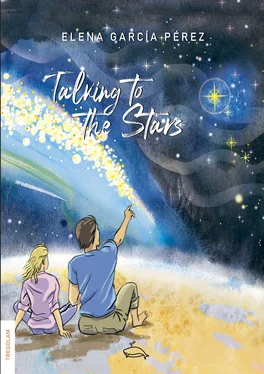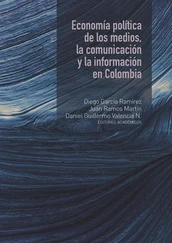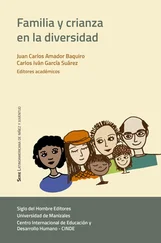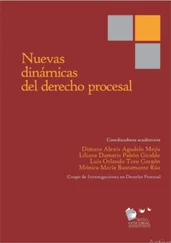“But how do you do it?”
“Do what?”
“Learn so fast. Everything I tell you, you record in your brain in a jiffy.”
“Well, when I hear them spoken they’re like musical notes. Think that I am getting used to expressing myself through music, and language is music too. The vocal cords of humans are like the strings of my guitar, they move and make sounds. So, words are sounds and to me they are like the musical notes I hear on my guitar.”
“It’s true, I’ve never thought about it before. So, you mean that you are going to learn languages with ease, isn’t that right?”
“Well, with the vocabulary I won’t have any kind of problems, but I need to learn the verb conjugation well and therein lies the problem. I heard that Spanish is difficult to speak correctly because of the number of irregular verbs it has, and that both the indicative and subjunctive tenses are spoken with great precision, much more than in other languages, and above all the verb ‘ser’ and ‘estar’, and the por, and the para... It’s complicated, isn’t it?”
“Well, the truth is that I can’t tell you well, I don’t know many languages. I am only studying English and French. To come to think of it, what you say may be true. In the French language, for example, the indefinite past tenses are not spoken in everyday life, so as if they did not exist, since they are only used by writers for their novels; In general, they use the past tense, for the verb ser and estar they have only one verb être, with ‘por’ and ‘para’ the same thing happens, both are said as pour. So, it’s easier, I’d say, right? As for the English language, there is a list of irregular verbs, so once you learn these, they solve your life a little. However, this does not happen with Spanish, since there is no list with all the irregular tenses since it would be endless. So, do you plan to learn many languages, Pipilet?”
“Yes, my idea is to travel the world, so I will have no choice if I want to make friends. And I also want to learn cultures, history, music and gastronomy, don’t forget.”
For three intensive hours they were talking about verb conjugations, as well as the different verb tenses, both indicative and subjunctive, and when to use each of them.
Elena suddenly realised that she had not yet asked Pipilet if he wanted to meet her friends that same afternoon.
“Excuse me, I had forgotten (past perfect tense of the verb forget), yesterday my friend Claudia heard you (simple past) playing the guitar, so she called me (simple past) on the phone and said she would love to meet you , and she has also proposed to meet with the rest of our friends, what do you think? Do I send her an SMS saying yes?”
“Hurray!! It can’t get any better! So I’m going to make new friends, right? Come on, come on, don’t wait another moment... Imperative, right?”
Elena smiled, gave her approval with her head and reached for her mobile to send a message, twenty minutes later she had the answer:
‘We will all wait for you impatiently by the river, in The Pirate’s corner; at four. Kisses.”
“Shall we take a break from our grammar class?” Elena suggested.
“Very well then.”
“But before, I have to tell you that Claudia has sent me a message saying that they are waiting for us at four in the afternoon.”
“Brilliant.”
“Pipilet, I suggest that we rest for a couple of hours and continue with the conversation you started yesterday with my parents, since I am very interested in continuing to talk about life and friends, okay? Do you think it’s OK?”
“No problem, friend, in two hours we’ll continue.”
“Okay, so we’ll meet out in the garden in two hours.”
“Perfect, getting some fresh air will do us both good.”
*
* *
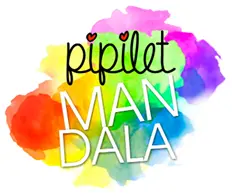
EXCHANGES
Two hours later Elena and Pipilet were in the garden looking at the sun, they felt how the energy of the solar rays went into each one of them, going through their bodies and feeding their cells. They closed their eyes and took three deep breaths. They sat comfortably on the ground with their legs crossed, needing contact with the Earth and soaking up its energy. Without realising it they looked deeply at each other, so Elena took advantage of that moment to start the conversation.
“What is life for you, Pipilet?”
Elena couldn’t wait any longer, she was anxious to know what her friend thought.
“For me, life is an accumulation of experiences that we must go through in order to grow internally. Experiences enrich me when I am part of and with others (I am with you and I am part of you). Do you understand me?”
“Not really.”
“Okay, I’ll try to explain myself. Have you ever heard of the fork tuning effect?”
“No, what’s that?”
“Well, the fork tuning is a metallic device used for tuning musical instruments. Hitting it produces a specific sound and vibration. What happens is that when a fork tuning is struck and vibrated, and another tuning gets close to the same note, the latter begins to vibrate without being struck. This curious effect is dominated by the fork tuning effect. At an energetic level something very similar happens. We all vibrate at a certain level and ‘tune’ with each other.
Haven’t you realised that sometimes you meet people that at a glance you like or dislike, without knowing why. Well, it is that your energy begins to vibrate without you realising it.
What happens? That you see yourself in the other, becoming this reflection of what is within you. Therefore, what you see good or bad about the other is a reflection of yourself, of your positive or negative internal vibrations.”
“So, if I realise this, does a transformation begin within me? Is this what you want to tell me?”
“Yes, of course, hence the importance of the other person, since they are authentic veins that provide us with information about what happens to ourselves.”
“Interesting. So, life is being and being. That is to say: BEING MYSELF (individual being in constant improvement), BEING WITH THE OTHERS (they act as true mirrors of myself), to find my essence I AM (divine entity).”
“According to you, what is life then?”
“Actually, you just said it. It is an experiment. But I will explain it to you in an even simpler way, making a comparison in your life as a student. When you start a course in your academic year, you have a goal to achieve: pass the course to move on to the next year. To achieve your goal, you will need to acquire knowledge in different subjects and be able to pass them all, right? Well, now I’m going to make a comparison of what I just told you with our lives. School years would mean‘our years in life.’ In each year of life (school year) we will have: experiences, difficulties, changes, so by the end of this, we will have acquired a series of experiences that will lead to knowledge. Now, Elena, here comes my question: do you think that with a single school year you will have reached the total knowledge that will lead you to obtain your doctorate degree?”
“No, impossible; at least from me. There are people who can be very smart and can skip a course, but most of them go from year to year, and no matter how smart they are it will take many years as well.”
“Well, you have given yourself the answer. But I let you reflect a little more and it would be great if you talked to your parents too, okay?”
“Okay, but tell me: what role do schoolmates play?”
“Yes, of course. They play a very important role in our life. Let’s go back to student life. Before starting a course, we are excited to meet again with our classmates in general and with the more intimate ones with whom you get on with even better, and we will even get to meet new ones. Student life is made by participating in common: we unite in groups of friends, then we seek out our leaders and class representatives. The teachers are not only our teachers, but also guides, to achieve that learning. That is to say, all together, they obtain that learning of knowledge of which we have spoken about previously. Therefore, the school year is equal to one’s personal life. And what was the purpose, Elena?”
Читать дальше
